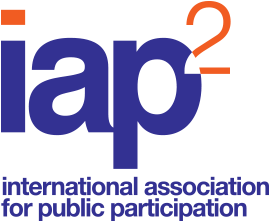Share Knowledge
Description
These resources will help you to have productive conversations, create communities of practice, and advance sustainability across industries and sectors by sharing knowledge internally and externally.
Share this Practice on:LinkedIn
Resources
Wenger-Trayner & Communities of Practice
Communities of practice (COPs) allow businesses with common concerns, problems, and interests to share their knowledge and achieve both individual and group goals - but how does one effectively participate and convene? Etienne and Beverly Wenger-Trayner share decades of experience in developing conceptual frameworks and practices for organisations. Whether you are new to systems of collective inquiry and reflection or well-versed, these resources can help you to advance your knowledge and execution.
International Association of Public Participation (IAP2)
Public input helps organisations make better decisions and achieve stronger social approval. Towards achieving this end, IAP2 Canada - an association of professionals in the field of public participation (P2) - have created resources and training that can help you to improve the practice of public participation, regardless of your geographic context.
Among their resources is IAP2's spectrum of public participation, which can help you to identify your goals and associated commitments to the public. The underlying premise is that public input will help the organisation make a better decision, and with stronger social approval.
The Partnering Initiative
The Partnering Initiative (TPI) has created a range of resources to support multi-stakeholder collaboration among business, governments, NGOs, and the United Nations. Their tools, guidebooks, case studies, and other resources cover a broad range of aspects of partnering, including maximising partnership value creation, partnering for philanthropic impact, collaboration for the SDGs, exit aspects of partnerships, and practical approaches to brokering and communicating. TPI is a good starting point for leaders and practitioners who want to develop their engagement skills and create systems and mechanisms for convening sktaeholders and catalysing partnerships.
Liberating Structures
There are five conventional structures that guide the way we organise routine interactions and how groups work together: presentations, managed discussions, open discussions, status reports, and brainstorm sessions. These structures, however, can stifle inclusion and engagement, and are often too inhibiting or too loose and disorganised. To complement these more conventional options and improve shared knowledge and engagement, Liberating Structures introduces a menu of 33 innovative methods. Each method includes expected outcomes, step-by-step instructions, "tips and traps," examples, and more.
The Social Change Agency
This short article from Esther Foreman, CEO of the Social Change Agency, is a helpful introduction to managing communities of practice. In it, she provides a simple, 5-point summary: curate the group, create space, manage knowledge, be thoughtful towards governance, and look after everyone through appreciative inquiry.
If you are making your first foray into communities of practice, The Social Change Agency provides additional free resources to help you get started, including a movement building canvas and a network building canvas.
The Complete Guide To Social Media Sustainability
This resource can help you get started in leveraging sustainability through social media. It introduces the concept of social media sustainability, explains its potential benefits and drawbacks, and provides a framework for implementing a social media sustainability campaign.
Share this Practice on:LinkedIn





